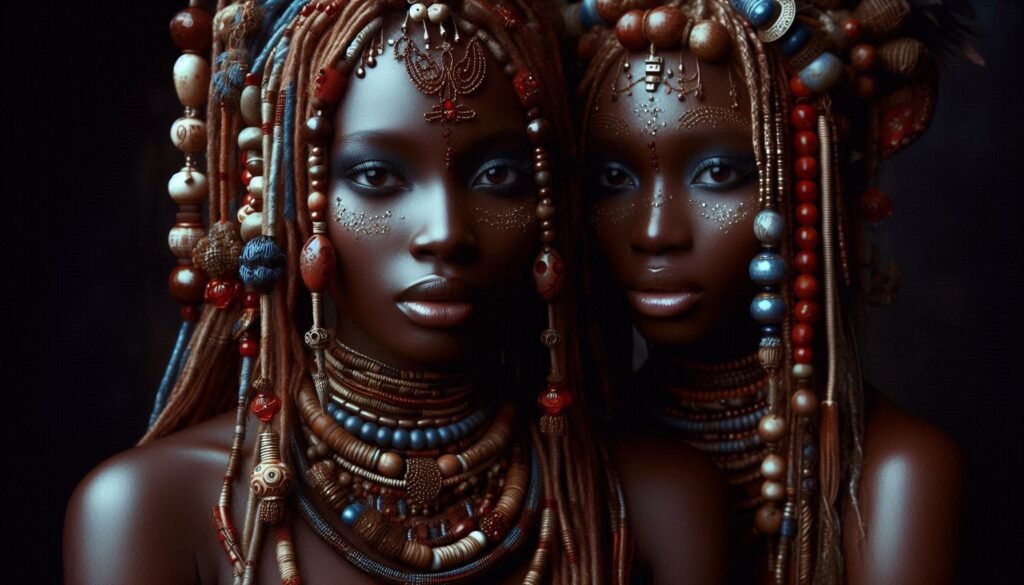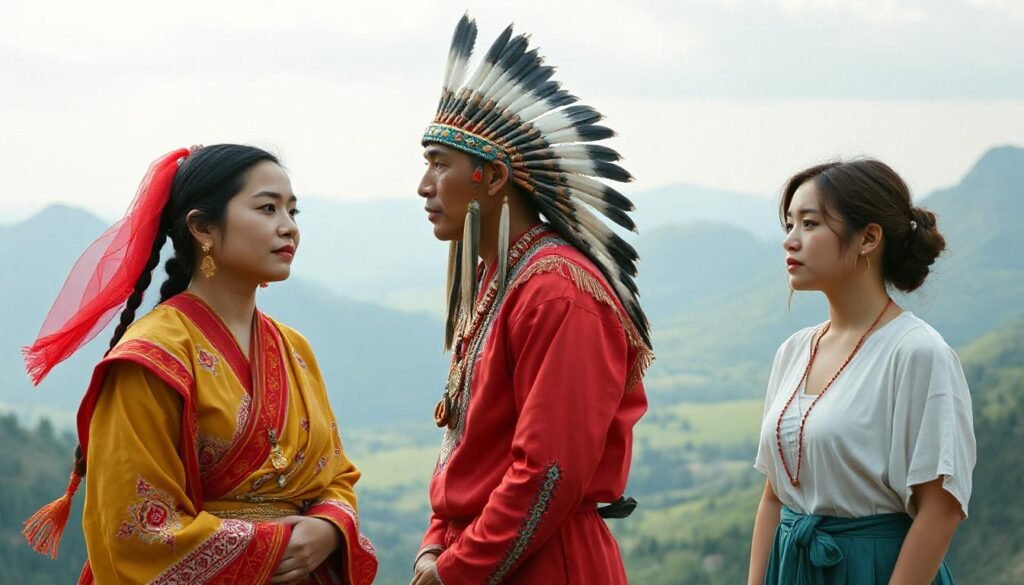Introduction to Junjufemale
In today’s world, where cultures blend and evolve rapidly, certain traditions stand strong, holding the essence of their origins. One such intriguing and lesser-known tradition is Junjufemale. This cultural practice is steeped in history and carries profound significance for the communities that embrace it.
But what exactly is Junjufemale? This article aims to shed light on this unique cultural practice, exploring its roots, relevance, and the role it continues to play in contemporary society. Whether you are a cultural enthusiast or someone curious about global traditions, this article will provide a comprehensive understanding of Junjufemale.
What is Junjufemale?
Junjufemale is a traditional practice that has been passed down through generations, primarily within specific indigenous communities. The term itself encapsulates a range of activities, beliefs, and customs that are central to the identity of these communities. Though it might not be widely recognized outside of these cultural circles, Junjufemale is deeply respected and cherished by those who participate in it.
At its core, Junjufemale involves rituals, ceremonies, and social gatherings that reinforce community bonds and celebrate cultural heritage. These practices are often tied to important life events, such as births, marriages, and harvests, serving as a means to honor ancestors and ensure the continuity of traditions.
Historical Background of Junjufemale
The origins of Junjufemale can be traced back centuries, with its roots deeply embedded in the history of the communities that practice it. Historically, Junjufemale was a way for these communities to preserve their identity in the face of external pressures, whether from colonization, modernization, or other cultural influences.
Over time, the practice of Junjufemale has evolved, adapting to changing social and economic conditions. However, it has retained its core principles, emphasizing the importance of community, respect for elders, and a deep connection to the land.
In many ways, Junjufemale serves as a living link to the past, providing a sense of continuity and belonging for those who uphold these traditions.
The Cultural Significance of Junjufemale
Junjufemale is more than just a set of rituals; it is a way of life that reflects the values and beliefs of the communities that practice it. One of the key aspects of Junjufemale is its role in reinforcing social cohesion. The rituals and ceremonies associated with Junjufemale bring people together, fostering a sense of unity and shared purpose.
Another significant aspect of Junjufemale is its focus on intergenerational knowledge transfer. Elders play a crucial role in teaching younger generations about the customs, stories, and meanings behind Junjufemale practices. This ensures that the knowledge and wisdom of the ancestors are not lost but continue to thrive within the community.
In addition to its social functions, Junjufemale also holds spiritual significance. Many of the rituals associated with Junjufemale are designed to honor the spirits of the land, ancestors, and deities. These practices are believed to bring blessings, protection, and prosperity to the community.
The Modern Relevance of Junjufemale
In today’s fast-paced world, where many traditional practices are being forgotten, Junjufemale remains relevant and continues to be practiced with pride. For many, Junjufemale serves as a way to resist cultural homogenization and maintain a distinct identity in a globalized world.
Moreover, the resurgence of interest in indigenous cultures and sustainable living has brought renewed attention to practices like Junjufemale. As people seek to reconnect with nature and find balance in their lives, the holistic and community-centered approach of Junjufemale offers valuable insights.

Junjufemale also provides a framework for addressing contemporary issues such as environmental conservation, social justice, and mental well-being. By drawing on the wisdom of the past, Junjufemale offers solutions that are rooted in respect for the earth and the interconnectedness of all life.
Key Rituals and Practices of Junjufemale
To truly understand Junjufemale, it’s essential to explore some of its key rituals and practices. While these can vary depending on the specific community, there are common elements that are central to the tradition:
1. Rite of Passage Ceremonies
- These ceremonies mark significant life transitions, such as coming of age, marriage, and childbirth. They often involve elaborate rituals, dances, and feasts, symbolizing the individual’s journey and their role within the community.
2. Ancestral Veneration
- Honoring ancestors is a core component of Junjufemale. This is typically done through offerings, prayers, and storytelling, ensuring that the memory and influence of ancestors remain alive.
3. Seasonal Celebrations
- Junjufemale includes rituals that coincide with natural cycles, such as planting and harvest seasons. These celebrations acknowledge the interconnectedness of humans and nature, expressing gratitude for the bounty of the earth.
4. Healing Practices
- Traditional healing methods, often involving herbal remedies and spiritual rituals, are an integral part of Junjufemale. These practices are believed to restore balance and harmony within individuals and the community.
5. Community Gatherings
- Social cohesion is reinforced through regular gatherings that bring together members of the community. These events serve as opportunities for sharing knowledge, resolving conflicts, and strengthening communal ties.
Preserving Junjufemale in the Future
As with many traditional practices, Junjufemale faces challenges in the modern world. Urbanization, migration, and the influence of mainstream cultures can lead to the erosion of these customs. However, efforts are being made to preserve Junjufemale for future generations.
Community-led initiatives, cultural education programs, and the documentation of Junjufemale practices are crucial steps in ensuring its survival. Additionally, there is a growing recognition of the importance of cultural diversity, which has led to increased support for preserving traditions like Junjufemale.
For those interested in learning more about Junjufemale, participating in cultural exchange programs or visiting communities where these practices are still vibrant can provide a deeper understanding and appreciation of this rich tradition.
FAQs about Junjufemale
1. What is the meaning of Junjufemale?
- Junjufemale refers to a set of traditional practices and customs that are deeply rooted in the cultural heritage of specific indigenous communities. It encompasses rituals, ceremonies, and social gatherings that celebrate community, ancestry, and connection to the land.
2. Where is Junjufemale practiced?
- Junjufemale is practiced by certain indigenous communities, primarily in regions where these traditions have been passed down through generations. The exact locations may vary, but it is most commonly found in areas with strong cultural ties to the land and ancestral traditions.
3. What is the significance of Junjufemale rituals?
- The rituals of Junjufemale hold social, spiritual, and cultural significance. They strengthen community bonds, honor ancestors, and maintain a connection to nature. These practices also ensure the continuity of cultural knowledge across generations.
4. How is Junjufemale relevant today?
- In today’s world, Junjufemale serves as a means of preserving cultural identity and resisting cultural homogenization. It also offers valuable lessons in sustainability, social justice, and mental well-being, making it relevant to contemporary issues.
5. How can I learn more about Junjufemale?
- To learn more about Junjufemale, consider engaging with cultural exchange programs, visiting communities that practice it, or exploring academic and cultural resources that document these traditions.
Conclusion
Junjufemale is a vibrant and enduring cultural practice that offers profound insights into the values, beliefs, and traditions of the communities that uphold it. As we navigate an increasingly interconnected world, the preservation of such traditions is vital in maintaining cultural diversity and honoring the wisdom of the past.
By understanding and appreciating Junjufemale, we not only enrich our knowledge of global traditions but also contribute to the broader effort of preserving cultural heritage for future generations.
Read more on thehansindia.


